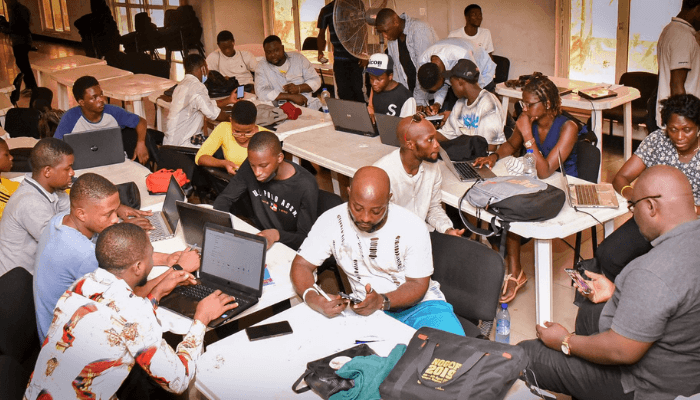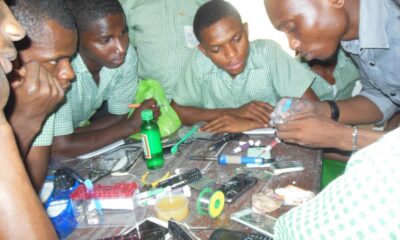Business
Digital Literacy Goals: NITDA Lists Agencies That Must Partner

The Federal Government’s digital literacy plan may never be realised without a collaboration of the Federal Ministry of Education, and key parastatals in the country.
Such agencies include the Ministry of Communications, Innovations, and Digital Economy; the National Information Technology Development Agency (NITDA), the Federal Ministry of Education (FME)
This point was stressed recently by the NITDA DG, Kashifu Inuwa, at the 68th Meeting of the National Council on Education (NCE).
Inuwa stated that such a partnership would make possible, the equipping of citizens with the necessary digital competences to thrive in an economic future dominated by digital technology
According to him, the digital literacy curriculum aligns seamlessly with the Digital Literacy Pillar which is one of NITDA’s Strategic Roadmap and Action Plan (SRAP 2.0).
The action plan, the DG added aims to achieve a target of 70% digital literacy by 2025 and 95% by 2030, and that it was to actualize this ambition that NITDA established a framework that emphasises the integration of digital literacy into the formal education system which is known as the Digital Literacy Framework (DLF).
The DG said as much as technology plays a pivotal role in improving lives, it is ultimately people who enhance technology.
READ ALSO: Women Financial Inclusion: IFC Woos Fintech Firms, Digital Services Providers
READ ALSO: How Smartphones Threatens Over 100 Million People’s Access to …
He assured that, that developed curriculum is expected to be reviewed and approved at the Council, marking a significant milestone in the journey toward a tech literacy in the country.
“By prioritising the training of citizens in digital literacy and related skills, the country can harness the full potential of its human resources”, he stated.
He underscored NITDA’s commitment to upscaling training processes for citizens and in the bid, fostering digital fluency among the populace
This he added, would enable Nigerians navigate and utilise digital tools and services effectively, in line with the Federal Government’s intention to: increase citizens’ digital fluency and build a workforce capable of developing Nigeria’s digital offerings.




















